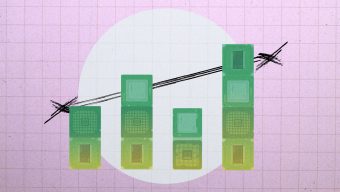The Bible contains a story known as “The Parable of the Talents.” (There are several versions of this story, including Matthew 25:14–30.) In the parable, a man hands out units of currency called talents to his three servants and instructs them to use the talents as best they can. Two of the servants use the talents to earn a profit, which they hand over to their master upon his return. But the third servant, fearful of his master’s reaction, buries his talents in the ground and returns the same amount he was given. This last servant is punished for his carelessness and lack of commitment.
Religious significance aside, this story shows what happens when we fail to exercise our talents as professionals: waste and missed opportunities.
As human longevity has increased, so has the length of our working lives. Nowadays, the labor market demands immediacy and knowledge becomes obsolete in record time. Over the estimated 50 years of a professional career, it is not unusual for a person to study three different subjects, with development periods of about 10 years between courses of study. In other words, every decade or so, we should look for complementary areas in which to expand and update our knowledge.
In today’s knowledge-hungry society, companies and government bodies require digital knowledge and skills—and academic institutions must respond to this need.
10 skills
According to a report from the World Economic Forum, the following are the top 10 skills that every professional must have in order to remain relevant in the job market of 2020:
- Complex problem-solving
- Critical thinking
- Creativity
- People management
- Coordinating with others
- Emotional intelligence
- Judgment and decision-making
- Service orientation
- Negotiation
- Cognitive flexibility
Don’t panic—if you want to acquire these skills, a huge amount of information is available to expand your knowledge. Never before has so much information been available to everyone, and yet we do not make full use of this possibility. Some have argued that human beings have limited capacity, but we are constantly expanding the limits of this capacity and demonstrating empirically that the plasticity of the brain can take us even further.
Every decade or so, we should look for complementary areas in which to expand and update our knowledge.
The cure for ‘infoxication’
What’s the problem? What’s holding us back? Nowadays, we are “overnewsed but underinformed.”
With so much information available, we lose sight of the differential value of information. When everything seems equally important, it becomes impossible to prioritize. Distinguishing the relevant from the incidental is essential in a world characterized by infoxication. Information overload prevents us from distinguishing between reliable sources and irrelevant comments.
Technology has facilitated this situation, but it can also help us to achieve new goals. Knowledge is no longer the redoubt of the few. In today’s knowledge-hungry society, companies and government bodies require digital knowledge and skills—and academic institutions must respond to this need.
Besides providing this knowledge, academic institutions must try to anticipate the demands of companies and institutions by increasing their capacity to provide training in the new technologies that facilitate and support this knowledge revolution. They must separate the wheat from the chaff and focus on obtaining results in order to provide a cure for infoxication.
The industrial revolutions—including the fourth and current one—have shown that technology is capable of propelling human beings beyond our previous limits.
Benefits
The ultimate goal is not the technology itself, but rather to increase efficiency and develop new forms of income—either financial or emotional, in the form of free time.
Technology has demonstrated its enormous capacity to accompany change. The industrial revolutions—including the fourth and current one—have shown that technology is capable of propelling human beings beyond our previous limits.
Technologies such as artificial intelligence, process robotization, and big data are demonstrating their vast potential for transformation and will become more important than ever in the coming years. The sky’s the limit: technology will begin to advance exponentially, leaping ahead in ways that our linear brains cannot fully anticipate.
Technology will predict your tastes, robots will clean your home and deliver your mail, you’ll be able to talk to your microwave, your refrigerator will be able to talk to your pantry—all this and much, much more. Our lives will be filled with new experiences.
To be sure, some people will fear these changes. But they will happen whether we fear them not, so let’s make the most of this opportunity.
© IE Insights.











